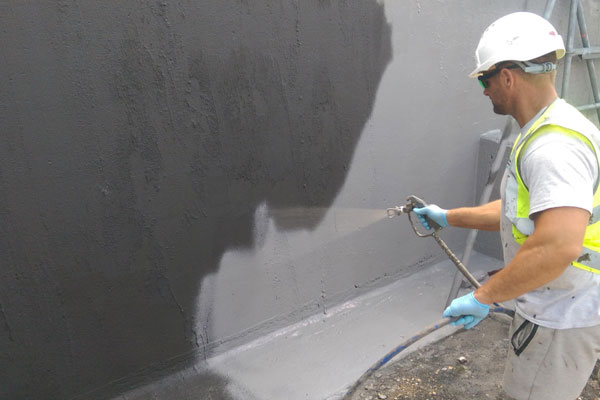AWS (Amazon Web Services), is the most widely used and comprehensive cloud platform in the world. Launched in 2006, it includes a combination of Infrastructure-as-a-Service (IaaS), Platform-as-a-Service (PaaS), and Software-as-a-Service (SaaS) offerings–175 full-featured services in all. AWS provides cloud customers with useful tools like computing power, data storage, and content delivery, all of this can be learned in the AWS Certification Training.
What is an AWS engineer?
An AWS engineer can be described as an IT professional who develops, maintains, and evolves AWS cloud infrastructure to run applications. These infrastructures can be used for production, testing, or development purposes. Once we have a clear definition of the job, it is time to go into detail about exactly what they do.
AWS Engineer Roles and Responsibilities
These are the expectations of AWS engineers. Keep in mind, not all businesses or organizations will require their AWS engineers for every task and responsibility. Depending on the company’s size and nature, expectations can vary.
- Assist in the development, implementation, and growth of AWS cloud infrastructure
- Configure, release, manage, and maintain all production systems
- Maintain a process of continuous integration and deployment for server-based technologies
- Collaborate with engineering and architecture teams to develop and implement any scalable services.
- Use the best cloud security solutions to ensure system security
- Keep up-to-date with the latest technology and vendor products. Evaluate which ones are a good fit for your company.
- Implement continuous integration/continuous delivery (CI/CD) pipelines when necessary
- Recommendations and architectural improvements
- You can troubleshoot and solve all platforms and applications domain problems.
- To ensure high-quality services and products, oversee pre-production acceptance testing
An AWS Engineer’s Tools
We’re using “tools” and the “skills” interchangeably in this instance, as they are both resources that can be used to accomplish the task. A good AWS engineer needs:
- AWS is just common sense.
- AWS has the ability to design and build web environments, including working with services such as EC2, ELB, and RDS.
- Cloud-native apps require experience in building and maintaining them
- Solid knowledge of Linux/Unix administration and Windows server system administration
- Experiments using DevOps tools within a cloud environment such as Ansible and Artifactory.
- Experience configuring and installing different application servers, such as JBoss and Tomcat.
- CloudWatch, ELK Stack, and Prometheus are all monitoring solutions that you can use.
- An understanding of writing Infrastructure-as-Code (IaC), using tools like CloudFormation or Terraform
- Working knowledge of one or more of today’s most popular programming languages is required for cloud computing.
- Experience in troubleshooting distributed system
- Proficiency in scripting languages and script development
- Ability to work as a team player
- Ability and skill to teach others in technical and procedural topics
- Collaboration and communication skills are essential
AWS engineers who work in DevOps must also have experience with:
- Continuous Delivery (CD) theory, concepts, and application in real life. This requires knowledge of tools such as AWS CodeBuild, AWS CodeDeploy, and AWS CodePipeline
- Understanding automation
The AWS Engineer Learning Path
There are many things to know, but there is an AWS learning pathway that will take you to the top.
A majority of AWS cloud engineers have a minimum bachelor’s degree in either computer science or information technology. You will then need to spend three to five years in the software development industry to complement your education. Some corporations require that you have at least 10 years of experience in related systems engineering.
Software development includes programming languages like C++, Java, and Python. You should also have knowledge in a variety of tech tools and platforms, such as Kafka and Kubernetes and Redshift, Scala, and Spark. The final step is to add DevOps, Docker, and Linux skills to your experience.
Cybersecurity is a growing concern. Cloud engineers need to have cybersecurity skills. McAfee reports that 40% of IT professionals have stopped cloud migration projects due to security concerns or a lack of cybersecurity skills.
There are many educational institutions that offer classes in the skills you don’t have to learn on the job. You can fill these knowledge gaps with a few continuing education classes. Even night classes are possible if you have a job.
Are there AWS Engineer jobs?
The term “AWS cloud engineering” is vague in the interests of full disclosure. An AWS engineer can take on many roles, so it is more practical to break it down into specific functions. Here are the 15 career options that AWS cloud engineers can choose from. According to Indeed, these are the most sought-after positions today:
- Back-end developer
- Cloud engineer
- Data engineer
- Data scientist
- Engineer for development operations
- Front-end developer
- Full-stack developer
- Java developer
- .NET developer
- Senior Java developer
- Software engineer in a senior position
- Software architect
- Administrator of systems
- Software engineer
- System engineer
These are the top five cloud computing markets that are booming in America, according to Forbes.
- Chicago-Naperville-Elgin, IL
- New York-Newark, Jersey City, NY
- San Francisco-Oakland-Hayward, CA
- San Jose-Sunnyvale – Santa Clara, CA
- Washington DC, Arlington-Alexandria, VA
Here’s a list that shows where Amazon AWS opportunities are concentrated for a global perspective. This list will give you an idea about where you have a better chance to find cloud-related jobs around the globe.
- Bangalore, India
- Beijing, China
- Berlin, Germany
- Capetown, South Africa
- Dublin, Ireland
- London, UK
- Seoul, South Korea
- Singapore
- Sydney, Australia
- Tokyo, Japan
- Vancouver, Canada
Amazon has AWS job openings in these US cities, just for the record:
- Boston, Massachusetts
- Dallas, Texas
- Herndon, Virginia
- New York, New York
- San Francisco Bay Area, California
- Seattle, Washington




